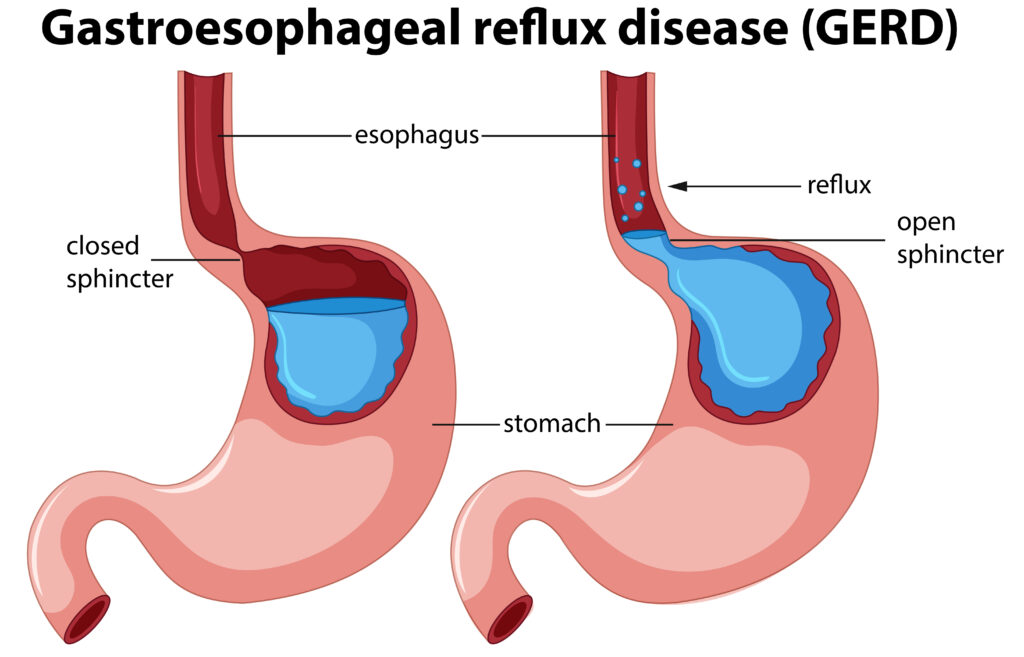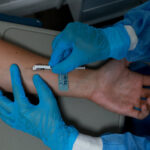Gastroesophageal Reflux Illness (GERD)

Learn how to effectively manage Gastroesophageal Reflux Illness (GERD) through lifestyle changes, medication options, and natural remedies. Understand the common indications, risk factors, and complications of untreated GERD.
Gastroesophageal Reflux Illness (GERD) could be a constant therapeutic condition that influences millions of individuals around the world. It happens when stomach corrosive streams back into the esophagus, causing disturbance and inconvenience. In this comprehensive direct, we’ll dive into the different viewpoints of GERD, from its causes and indications to successful administration procedures.
What are GERD and Common Indications
Understanding GERD is crucial to effective management. GERD, commonly referred to as corrosive reflux, maybe a condition where the lower esophageal sphincter (LES) debilitates, permitting stomach corrosive to stream back into the esophagus. This reverse stream can lead to a range of indications, counting:
Acid reflux: Experience a burning sensation within the chest which will emanate to the throat.
1- Spewing forth: Feel the sensation of stomach substance, counting corrosive, coming back into the mouth.
2- Chest Pain: Encounter sharp or gloomy torment within the chest, frequently mixed up for a heart assault.
3- Difficulty Swallowing: Face the sensation of nourishment getting stuck within the throat.
4- Constant Cough: Develop a determined hacking, particularly at night, due to bothering.
Hazard Components for GERD
Various variables contribute to the improvement of GERD, including:
1- Weight: Excess weight puts weight on the midriff and LES, advancing corrosive reflux.
2- Diet: Consuming greasy, fiery, and acidic nourishments can trigger GERD indications.
3- Hiatal Hernia: A condition where a portion of the stomach juts into the chest depression.
4- Pregnancy: Hormonal changes and expanded weight amid pregnancy can cause GERD.
5- Smoking: Smoking debilitates the LES and impedes saliva’s capacity to neutralize corrosive.
Way of life Alterations for GERD Administration
Effectively overseeing GERD involves making key way of life changes:
1- Adopt a GERD-Friendly Diet: Embrace a diet wealthy in natural products, vegetables, incline proteins, and entirety grains. Avoid trigger nourishments.
2- Weight Misfortune: Shedding an overabundance of pounds can decrease weight on the midriff and ease side effects.
3- Meal Timing Strategies: Opt for smaller, more visit suppers and avoid eating close to sleep time.
4- Elevate Head: Raise the head of your bed to prevent nighttime corrosive reflux.
5- Choose Comfortable Clothing: Opt for loose-fitting clothing to avoid pressure on the guts.
Medicine Alternatives for GERD
Pharmaceutical alternatives can offer assistance in mitigating GERD indications:
1- Stomach settling agents: Utilize over-the-counter stomach settling agents to neutralize stomach corrosive for short-term help.
2- Proton Pump Inhibitors (PPIs): Reduce corrosive generation and advance mending of the esophagus.
3- H2 Blockers: Decrease corrosive generation and offer longer-lasting help compared to stomach-settling agents.
Characteristic Cures for GERD Relief
Explore natural cures to help manage GERD side effects:
1- Ginger Tea: Discover the anti-inflammatory properties of ginger tea, which can alleviate esophageal discomfort.
2- Aloe Vera Juice: Experience the soothing properties of aloe vera, providing relief from irritation.
3- Slippery Elm: Explore the benefits of this herbal supplement, forming a protective layer within the esophagus.
Complications of Untreated GERD
Ignoring GERD can lead to severe complications:
1- Esophagitis: Encounter inflammation of the esophagus lining due to prolonged corrosive exposure.
2- Barrett’s Esophagus: Understand the precancerous condition where esophageal cells alter, increasing cancer risk.
3- Respiratory Issues: Recognize the potential respiratory problems arising from aspiration of stomach contents into the lungs.
Planning a GERD-Friendly Diet Plan
Craft a diet plan tailored for effective GERD management:
1- Incorporate GERD-Friendly Foods: Opt for incline proteins, entirety grains, non-citrus natural products, and vegetables.
2- Avoid Certain Foods: Steer clear of high-fat nourishments, zesty dishes, citrus natural products, and caffeinated refreshments.
3- Practice Portion Control: Opt for smaller portions to prevent overeating and alleviate pressure on the LES.
Overseeing Acid Reflux and Finding Alleviation
Discover straightforward strategies to alleviate acid reflux:
1- Baking Soda Solution: Neutralize corrosive by blending a teaspoon of prepared pop in water.
2- Chewing Gum: Stimulate spit generation by chewing sugar-free gum, neutralizing corrosive.
3- Wearing Comfortable Clothing: Opt for loose clothing to avoid exacerbating discomfort.
GERD During Pregnancy: Indications and Safe Management
Navigate GERD during pregnancy with these guidelines:
1- Dietary Adjustments: Opt for smaller, more frequent dinners and avoid trigger nourishments.
2- Elevated Resting Position: Use pads to raise your upper body during sleep.
3- Consult a Specialist: Seek therapeutic guidance before considering any pharmaceutical interventions.
The Association Between Hiatal Hernia and GERD
Understand the correlation between hiatal hernia and GERD:
1- Exploring Hiatal Hernia: Gain insights into the condition where a portion of the stomach extends into the chest.
2- Impact on GERD: Explore how hiatal hernia can contribute to corrosive reflux.
Caring for Infants with Gastroesophageal Reflux
Receive tips on managing GERD symptoms in infants:
1- Recognizing Signs: Identify signs of GERD in infants, such as frequent spitting up and fussiness.
2- Feeding Strategies: Opt for smaller, more frequent feedings and hold the infant upright after eating.
Managing Nighttime GERD Symptoms
Minimize nighttime GERD symptoms with these suggestions:
1- Bedtime Snacking: Avoid eating close to bedtime to reduce the risk of reflux.
2- Sleep Position: Rest on your left side to prevent corrosive from flowing into the esophagus.
Conclusion: Taking Charge of Your GERD Management
In conclusion, understanding and effectively overseeing Gastroesophageal Reflux Illness (GERD) is essential for a higher quality of life. By implementing lifestyle changes, exploring pharmaceutical alternatives, and embracing natural remedies, individuals can alleviate symptoms and prevent complications. Seeking guidance from a healthcare professional is paramount for personalized advice and treatment options. Remember, proactive measures today lead to a healthier and more comfortable tomorrow.








